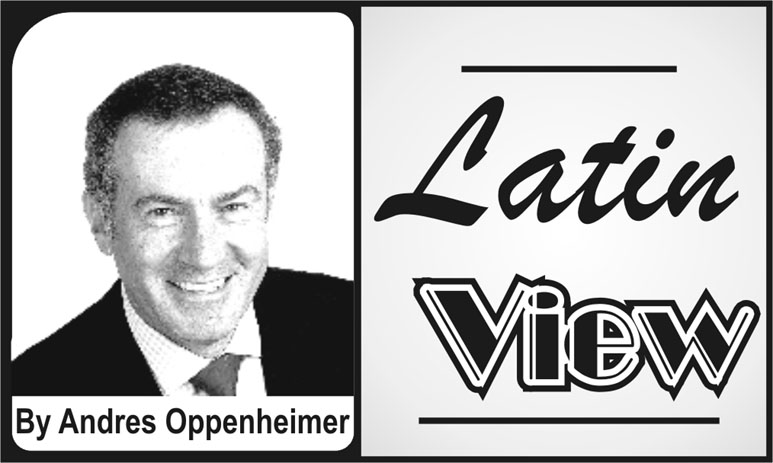President Barack Obama’s biggest upcoming diplomatic challenge in Latin America will be whether to attend the 34-country Summit of the Americas alongside Cuban leader Raúl Castro, who has been invited by the host country — Panama — over US objections. I think Obama should go, and do something really bold there.
Before we get into what exactly Obama should do, let’s recall that the United States opposes Cuba’s participation at this meeting because the 2001 Summit of the Americas in Quebec agreed by consensus that “strict respect for the democratic system” is an “essential condition of our presence at this and future summits.”
But Panama, which will host the summit in April 2015, has said it will invite Cuba at the request of all other Latin American countries, which voted at a recent Organization of American States (OAS) General Assembly to demand Cuba’s presence without preconditions at the 2015 Summit. Venezuela and several other countries have already said that they will not attend if Cuba is not present.

So Obama faces a tough choice: if he shows up at the meeting alongside Castro, critics on the right in Washington will accuse him of “unilateral surrender” to Cuban-Venezuelan diplomacy. They will say that Obama abdicated the US defence of democratic values in the region.
On the other hand, if Obama doesn’t go to Panama, other critics will accuse him of effectively killing the last diplomatic arena in which the United States has some leverage in Latin America.
Richard Feinberg, a former Clinton White House official who was a key architect of the first Summit of the Americas held in Miami in 1994, told me that “If President Obama does not attend the Panama summit and sends a stand-in, even if it’s Vice President Joe Biden, that’s the collapse of inter-American summits, and yielding the playing field to the Cubans, Venezuelans and Brazilians.”
When I asked US officials what the Obama administration plans to do, State Department spokeswoman Angela Cervetti told me that “the United States respects that Panama is the host of the next Summit, and the issue of which countries it invites is one for the Panamanian government to decide.”
But she immediately added that the 2001 Summit in Quebec agreed that only democratic nations should attend, and that “we should not undermine Summit commitments previously made, but instead should encourage democratic change in Cuba.” My translation: The administration has not yet decided what to do.
What are Obama’s options? If he decides not to go to Panama out of principle, or in order not to enrage Cuban-American voters in Florida and New Jersey ahead of the 2016 elections, he could send Biden. Problem is, Biden may be running for president, and he will be the last one to want to be photographed alongside Castro before the elections.
Another option for Obama would be trying to set conditions for Cuba’s participation, such as that the island make some gesture toward a political opening. But that won’t fly either, because Latin American countries agreed at the recent OAS meeting that Cuba should be invited without any strings attached.
Lastly, Obama could accept Cuba’s participation at the Summit as an “observer country,” arguing that China and Russia are already OAS observer countries, and Cuba’s addition wouldn’t amount to a big deal. But, again, Latin American countries demand that Cuba be invited as a full member, arguing that a 2009 vote at the OAS cleared the way for Cuba’s return to the inter-American diplomatic community.
My opinion: Obama should put in motion some creative diplomacy. He should attend the summit, and cede half of the time at his opening speech to a prominent Cuban dissident — someone like Cuban blogger Yoani Sanchez — to steal the show from Cuba’s aging military dictator.
The Cuban speaker would have an unparalleled public podium to tell the world about the government repression and poverty that the Cuban people have been suffering for the past five decades. That way, Obama could save the summit, argue that he is entitled to use his speaking time as he wishes, and defend the principle of democracy in the region.
© The Miami Herald, 2014. Distributed by Tribune Media Services.





